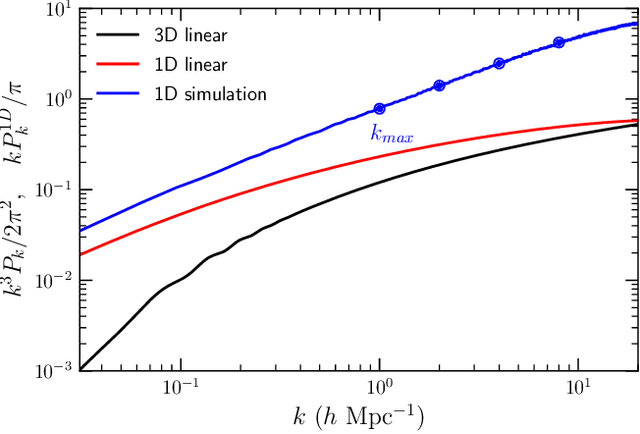Reconstruction of the Density Power Spectrum from Quasar Spectra using Machine Learning
Paper and Code
Jul 19, 2021



We describe a novel end-to-end approach using Machine Learning to reconstruct the power spectrum of cosmological density perturbations at high redshift from observed quasar spectra. State-of-the-art cosmological simulations of structure formation are used to generate a large synthetic dataset of line-of-sight absorption spectra paired with 1-dimensional fluid quantities along the same line-of-sight, such as the total density of matter and the density of neutral atomic hydrogen. With this dataset, we build a series of data-driven models to predict the power spectrum of total matter density. We are able to produce models which yield reconstruction to accuracy of about 1% for wavelengths $k \leq 2 h Mpc^{-1}$, while the error increases at larger $k$. We show the size of data sample required to reach a particular error rate, giving a sense of how much data is necessary to reach a desired accuracy. This work provides a foundation for developing methods to analyse very large upcoming datasets with the next-generation observational facilities.
 Add to Chrome
Add to Chrome Add to Firefox
Add to Firefox Add to Edge
Add to Edge